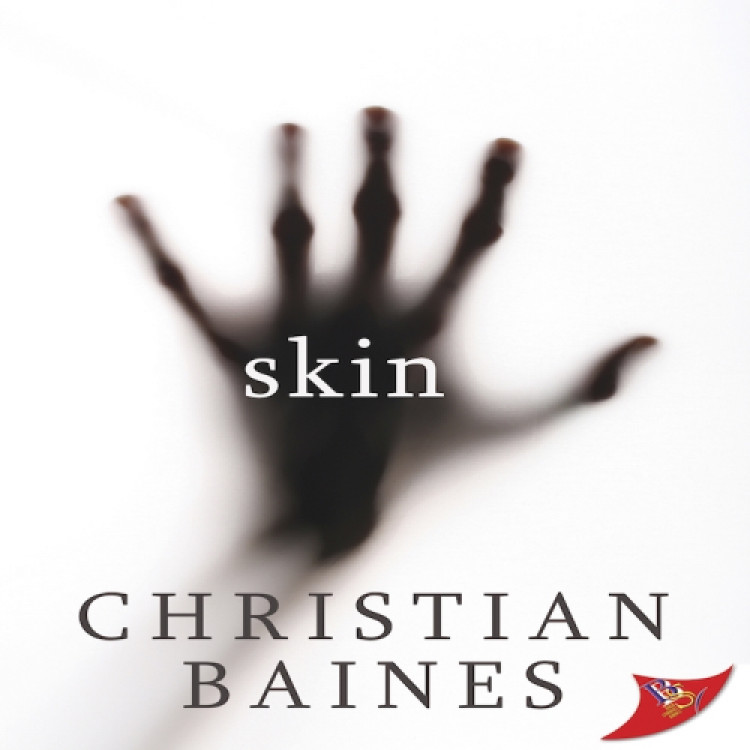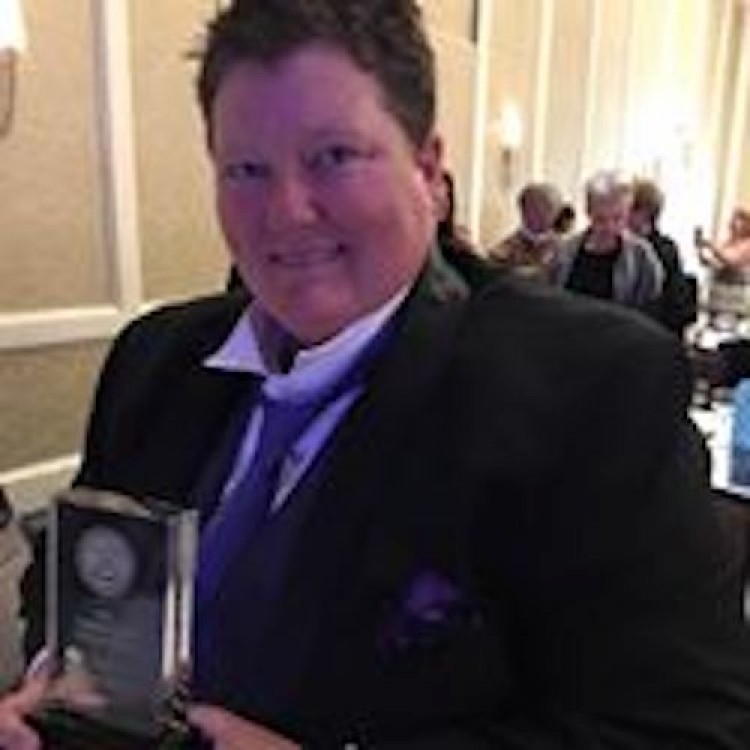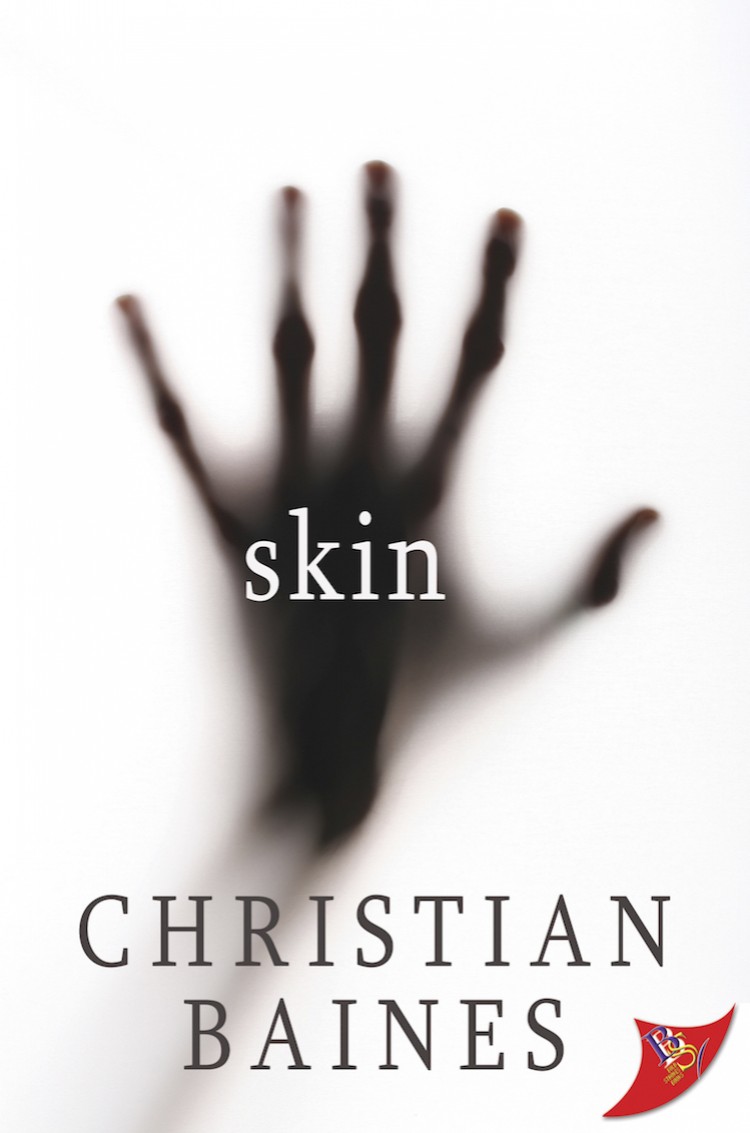MJ Williamz interviews Christian Baines:
First of all, I want to say how much I thoroughly enjoyed Skin! It was well written, fast paced, and the subject matter was fascinating.
Thank you! It’s something new for me, so it’s great to hear people respond in that way.
Let’s talk horror.
As more people should!
Why do you write in this particular genre?
I’d say a mix of forbidden fruit and melancholic appreciation of monsters. I was raised in a fairly conservative Christian family and went to a Christian school that really bought into the Satanic panic thing, so any stories in the horror realm or that scratched the surface of the occult were strictly off limits. But my family, particularly my grandfather, were hugely supportive of me reading older horror stories, like classic Victorian horror, Dracula, Frankenstein, Sherlock Holmes, and so on, and those inform so much of everything the genre became. So I absorbed them in dozens of different forms all through my childhood, and as an adult I just devoured everything else I could get my hands on. It’s so weird now I’m thirty-five, because my family’s views have softened. They know I write the stuff, and my mother and I usually wind up watching horror movies or gory thrillers together. My dad can’t go there, but my mum is definitely my grandfather’s daughter! As for the melancholia, I’ve just always felt an affinity for outsiders who aren’t particularly victims, and that’s the space many great horror characters, whether they’re good or evil, occupy.
Who are some of your favorite horror authors to read?
I’d say Anne Rice and Clive Barker are the authors who made me want to write horror, as opposed to just reading or watching it. Again, it’s that affinity. I like authors who get inside the monster’s head. I’ve always been a little distrustful of institutions and the established order, so I’m drawn to stories where the main character resists or subverts those institutions, for evil or good. I’m not usually interested in stories about the brave everyman who has to fight the evil monster and restore mundane normality. Even if I’m supposed to hate the monster, I want to feel completely compelled and fascinated by it. We come back to Hellraiser for Pinhead. Nobody remembers whatsherface.
My wife (Bold Strokes author Laydin Michaels) writes thrillers. They also keep you on the edge of your seat, but there’s no supernatural entity in them. Still, I think you both write super creepy bad guys…Have you ever thought of writing a thriller? Maybe a serial killer or something in that vein?
Thanks again! I’d say I’m open to just about any genre and I love reading thrillers. Puppet Boy is probably the closest I’ve gone to writing one. There are no supernatural elements in play there. It’s a bit of a hard line to define. If I wrote a serial killer story, I think I’d have a hard time not writing it from the killer’s perspective. Again, I like understanding the monster and subverting that comfort zone. I thought Patrick Roscoe’s book The Indivisible Heart was absolutely compelling in that way.
What do you consider to be the difference between thriller and horror?
I’m sure your answer is as good as mine. Thriller seems to be the safe term people want to call horror stories when they claim they don’t like horror! But it’s also a separate genre. I think there’s more freedom to go further with violence and the bizarre in horror. But supernatural thrillers are absolutely a subgenre as well, so we can argue that point. Thrillers have the power to be even more disturbing, having that layer of extra credibility. Daemons aren’t going to come crashing through your door, but what about a serial killer with a personal interest in you? Your chances of a happy ending do increase with a thriller, but I don’t think either genre comes with any guarantees on that score.
Where did you come up with the idea for this particular story?
I’d been to New Orleans several times and seen these boys who’d hang around the various bars, particularly on a slow night, and I just got very curious about their stories and what brought them to town, because none of them seemed to be born and bred there. New Orleans has been described to me (with affection) as a place where everyone has to hustle, so where does that put the actual hustlers who turn up with no skills and a lot of baggage? I can also now say I’ve hung out in a gay strip bar for book research.
I love New Orleans. And I love voodoo, so I have to say, I loved the setting. So, you’re from Australia and now live in Toronto, which leads me to ask, why New Orleans?
I love it too! I travel whenever I can and am drawn to cities that are completely unique and have no interest in emulating anywhere else. New Orleans is like nowhere else and nowhere else can hope to be like New Orleans. I think it speaks to a lot of people in its own language as soon as they arrive, and doesn’t let go. Those settings are always gold and they shine through in good stories.
Personally, I’m fascinated by it, so I’m curious, what are your feelings on voodoo?
Good question. I consider myself an atheist and a sceptic, but I also believe there’s more out there than we understand. That’s the grounding of the supernatural elements in my urban fantasy series, The Arcadia Trust. Science appears to be magic until you understand it. The same applies to voodoo, and if that manifests as religion for some, then that’s what it becomes.
Skin wasn’t a full-length novel. Why was that?
I thought about it and wrote a few scenes that wound up getting cut. Skin was originally only supposed to be a short, and though it grew into a novella, any extra scenes just padded out the story too much for me. I wanted a fast-paced story, and I think the final length is appropriate to the project. It’s quick, violent, dirty, and messed up, much like the incident that starts the story.
You write killer sexual tension. The build up was intense. As an erotic romance author myself, I need to know—how do you do that? How did you keep ratcheting up the tension?
That’s a massive compliment from an erotic romance author, thank you! I have a lot of respect for erotic romance authors who can build and sustain sexual tension in a way that makes me read every word. That’s rare for me, to be honest. In Kyle’s case, the sexual tension has been building his whole life. He’s had unsatisfying encounters growing up, where he’s basically been used, so he definitely has a yearning for real love. But he also has a yearning for hot, hard, no-strings sex, now that it’s something he understands. The kind of sex a hustler trades in, which gets in everybody’s way in Skin. I think underneath everything, even Ash wants that to step beyond that and experience real love, or at least affection from a guy, though he has no idea what that means.
Ash was a wonderfully awful bad guy. Where did you come up with the inspiration for him? And might we see him again?
I doubt we’re going to see any of these characters again, but I don’t rule anything out. Ash started out as a fascist skinhead, but it didn’t fit the setting. I also just hated the character, and they’re not going to be a good villain if you, the author, hate them. If he’s a skinhead fascist, he becomes a cartoon. If he’s just an angry young man, all bravado, insecure about his own sexuality, whose background we know nothing about beyond the façade he puts up, he becomes far more engaging and interesting, even sympathetic. We understand why Marc finds a kindred spirit there. We understand why Kyle takes an instant dislike to him, seeing what he, as a guy of perhaps pretty similar background, is scared of becoming. He’s also completely charismatic, which is the bread and butter of a good stripper or hustler. In Ash’s case, it probably also indicates a sociopath.
The black fog that enveloped Kyle in several scenes—did that just come from inside your head? Explain, please.
I like just a little surrealism if it’s working. What are the supernatural powers at play in the background of the story? What’s the spirit that keeps haunting Marc? Why the dog? A couple of readers have asked me why the blurb mentions the spirit that’s haunting Marc when he only turns up once. But they’re reading it too literally. Spirits take many forms. The boys are messing with powers they don’t understand, and it would have been cheating the story and the reader to have it all neatly explained.
I know you also write short stories. Which do you find easier to write, short stories or novels (or novellas)? And why?
To be honest, I don’t really write or read many short stories. Nor short films for that matter. It’s probably no surprise Skin blew out to novella length. I’ve done flash fiction for competitions and it’s fun, but I like a big canvas when I’m writing, and want lots of world to explore when I’m reading or watching or playing in a story. I’m even resistant to episodic storytelling if the stories are too self-contained. So, I prefer novels all the way.
What’s your writing ambiance like? Do you have spooky music playing in the background? Does it have to be complete silence?
Silence, with very rare exceptions. I might put on some music to get me in the mood. Usually dark synth, or alternative or heavy rock. Sometimes a trippy movie soundtrack. It depends on the project. But it’s shut off before I start. Whatever is going to get me in the scene. Music is all about mood for me, to the point I usually need lyrics pointed out! I screen out commercial TV and radio from my life as much as possible.
Where do you typically write? Do you have an office? Do you write in front of the TV? In bed? Is there a cocktail in hand? A bowl of chocolates nearby?
I’ve started writing in bed more just lately. Or the dining room table. I usually have at least one café writing session a week. One thing I’ve found is I need my back to the wall. I can’t be facing the wall or have my back exposed when I write just now, which is new. It changes.
Are you scheduled for any upcoming appearances? Where can your readers come see you?
Yes! Next year I’ll be at Boskone in Boston, February 16 to 18, then Saints and Sinners in New Orleans, March 23 to 25. I’ll also be coming to the UK for the Bold Strokes Books Festival in May.
What’s your favorite part of writing? Your least favorite?
The moment where I can lose myself in my own stuff and forget for an instant that I wrote it. That’s when I know it’s done, because I’m no longer reading all the insecurities and self-doubt that’s gone into it. Least favorite part? The insecurities and self-doubt! They’re paralyzing.
What would you say is the most valuable thing you’ve learned about writing since you started?
To not write for what you think the market wants! All that does is kill any brand momentum or signature style you might have. Your stories may not be what sells thousands of copies a month on Amazon (pro tip, stay away from the Amazon charts if you want to stay sane) but if you’re only writing something because the style or genre is popular, or putting out something because you think it’s expected, it shows. Even if people still buy it, it shows.
What advice would you give to a new, just starting out author?
To know that they know nothing, to admit that, shut up, and just listen. That’s the advice I would give to my starting-out self, anyway. Beyond that, get out of your shell. Go to events. Meet people. Network, but do it sincerely. Try to remember people and make connections. Watch what the authors you love do, and ask yourself how you can apply it. Read and talk up your peers and offer them support. Be nice. Don’t say everything that’s on your mind, but also don’t forget how to approach work critically.
What’s your favorite movie? Something by Stephen King, perhaps?
My favorites are Donnie Darko and Mulholland Drive. I’m drawn to smart, ambiguous genre movies with a strong aesthetic that’s totally their own. It seems most American movies now are split between superheroes and mega franchises, which can be fun, but don’t leave much room for individual style, and Oscar bait, which I find just too earnest and preachy a lot of the time. I like a lot of the Blumhouse stuff. I loved Get Out, which made its point crystal clear without ever preaching. Maybe audiences have fallen out with the genuinely weird or ambiguous stories. I love them, particularly when the missing pieces are filled in through visual or sound cues. Film language! I thought Darren Aronofsky’s latest film, mother! was spectacular, but I also know people who hated it. I’m cutting my answer here, because we could talk about this all day.
What’s next for Christian Baines? When will we see another book? And what will it be about?
Right now I’m working on the third book in The Arcadia Trust series, so more from Reylan and Sydney’s supernatural night-dwellers. I have a couple of project I’m putting down notes on for 2018, which will be quite different, so I’m looking forward to those too.



